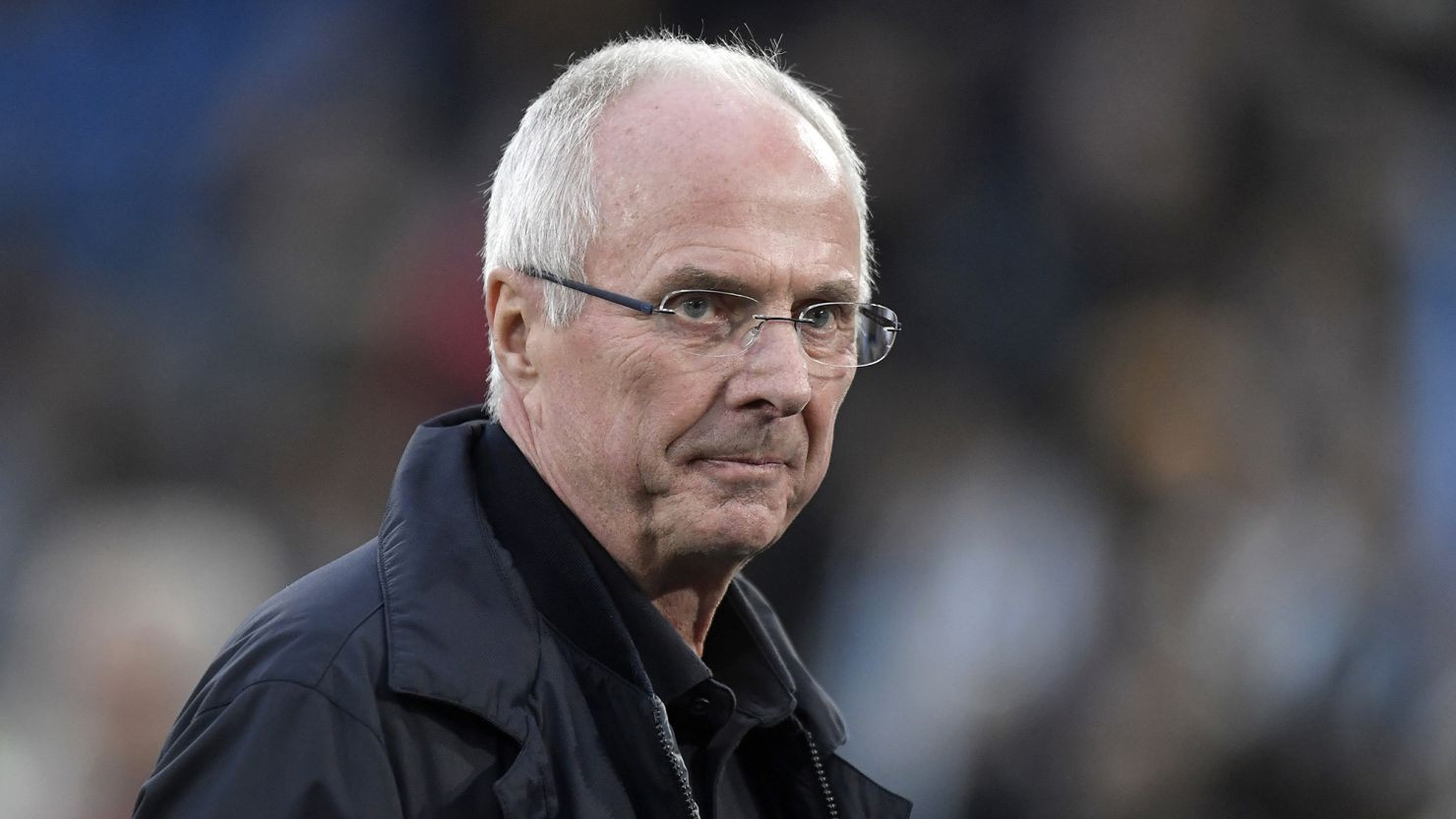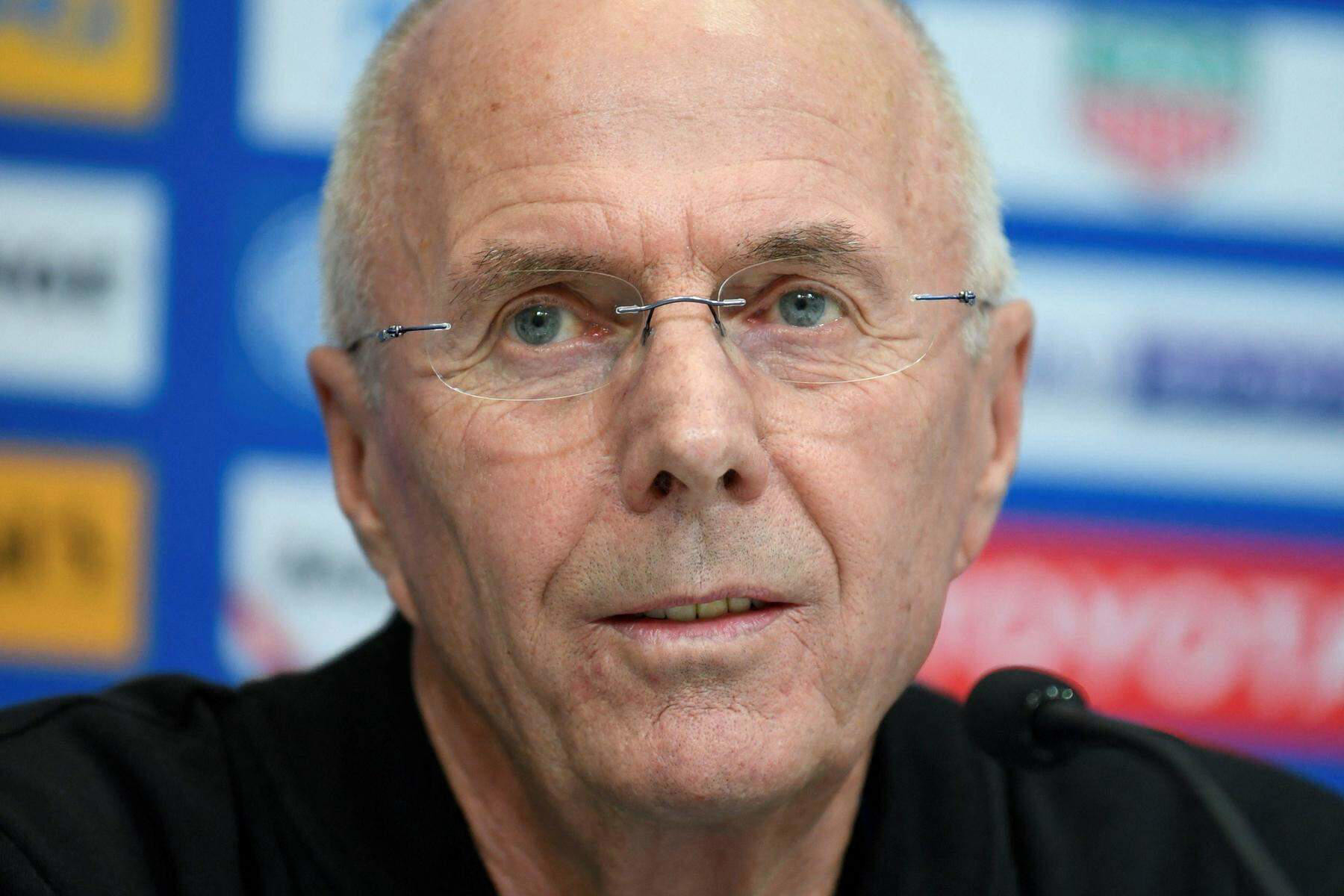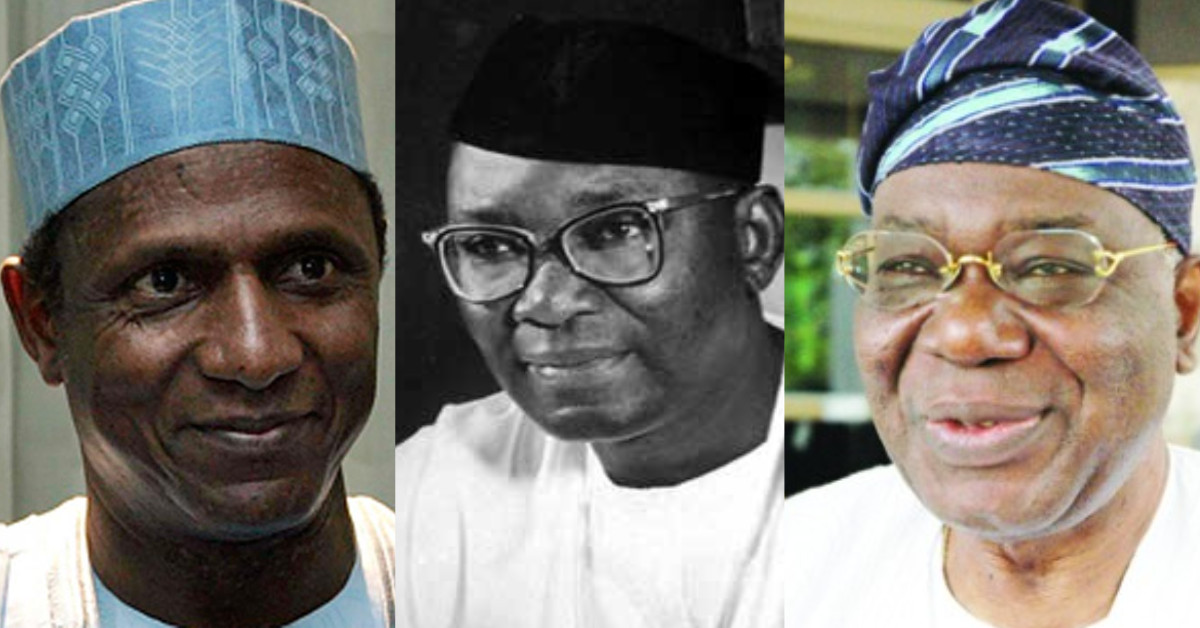"My thoughts are with his family and friends. A true gentleman of the game," the Prince of Wales, 42, continued, signing off "W." Prince William and his wife, Kate Middleton, are known to sign social media posts on their official Prince and Princess of Wales handles with the initials of their first names to signal when messages come directly from them.
He managed the England men's national team, nicknamed the Three Lions, from 2001 to 2006, and met Prince William during that time.
King Charles' elder son is the president of the Football Association, the governing body of soccer in England, and a loyal follower of the sport. In July, he attended the UEFA European Championship Final between England and Spain in Berlin, Germany, with his son Prince George, 11. The father and son duo watched the match with similar animated body language and shared a hug in the stands.
Prince William is known to send personal messages on X to comment on major news in the British soccer world, and he paid tribute to Eriksson amid his summer break with Princess Kate and their three children. Members of the British royal family are known to retreat from the limelight from late July through August for private vacations, and William and Kate were in Scotland over the weekend.
The Tabloid Obsession With Eriksson's Private Life
Sven-Göran Eriksson’s appointment as England manager in 2001, when he became the first foreigner to be given the job, was seen as a symbol of a more outward-looking nation. But his subsequent treatment by the press now feels more like the relic of a bygone age.
For decades, England managers provided colourful fodder for Britain’s ferocious tabloid newspapers. Glenn Hoddle and Kevin Keegan had their faded glamour and short-lived pop careers, while Terry Venables’s gruffness bought him respect from the red tops.
So when a bespectacled Swede who looked like a middle manager was appointed to lead the Three Lions in 2001, newsrooms across the country were dismayed.
But soon, editors found that Eriksson’s off-the-field life was often more appealing to them – and their readers – than his football tactics. And he was soon to find himself splashed all over the front pages, as well as the back.
There were accusations of treachery after his clandestine meeting in 2003 with the then Chelsea owner, Roman Abramovich. Eriksson also fell victim to an elaborate “fake sheikh” sting when he said he was prepared to become the £5m-a-year manager of Aston Villa just five months before he was due to lead England to the 2006 World Cup.
But perhaps most titillating of all was Eriksson’s complex love life, owing to a string of high-profile relationships including with the lawyer Nancy Dell’Olio, the TV presenter Ulrika Jonsson and the FA secretary Faria Alam.
In an era before the phone-hacking scandal, when tabloids – high on the “Wags” phenomenon – freely published smutty images and intimate details of celebrities’ private lives, Eriksson’s encounters suddenly took centre stage.
In an interview in 2018, Eriksson said the high profile of his love life took its toll. He said: “I thought I was prepared for England but I was not prepared for things outside football, my private life.”
The saga began when he started dating Dell’Olio a few years after his divorce from Ann-Christine Pettersson (with whom he shared two children). The relationship publicly imploded when Eriksson moved to England and embarked on an affair with Jonsson – leading to an infamous spat between the two women.
“Sven is behaving like a lying cad,” Jonsson said at the time. “He promised me it was over with Nancy but then takes her out to dinner and doesn’t even call me.” Jonsson later said sex with Eriksson was like “reading the instructions to Ikea furniture”.
Dell’Olio later took him back. But, ironically, Eriksson was accused of distracting the England team in the run-up to the 2002 World Cup by the very same newspapers that repeatedly wrote about his private life – forcing him to publicly state that the affair would not be affecting the side.
Yet he was always aware that it was the press that went for him, not the fans. “I always thought that if I did a good job the English people would be supportive. I had five-and-a-half years there and I never met any rude or abusive English football fans,” he said in 2017. “Almost everything negative was from the press. There was a big difference between the English fans and the English press.”
It was later, in 2004, when Eriksson had an affair with Alam, who also had a fling with the then chief executive of the Football Association, Mark Palios. Alam ended things with Eriksson when she found out he was simultaneously seeing five other women – and she later appeared on Celebrity Big Brother. In the Amazon Prime documentary Sven, Alam said Eriksson had told her to “tell your story, tell them everything. Make some money, why not?”
While the public scrutiny of his relationships became a point of anguish for Eriksson – he eventually split from Dell’Olio in 2007 before meeting his partner Yaniseth Alcides – he said he had “a good life”.
Eriksson's Approach to Life
If there was a perfect demonstration of this, it is the exchange he had with the German coach and former international Dietmar Hamann while on a post-season tour to Thailand with Manchester City in 2008.
In his autobiography The Didi Man, Hamann recalled lazing on a sun lounger by the pool at 10am when he saw Eriksson carrying a silver tray with a bottle of champagne. “I looked up and said: ‘Boss, what are we celebrating?’… He turned to me and smiled that gentle smile of his and took on the air of a Buddhist philosopher as he said: ‘Life, Kaiser.’
“Then, after pausing for dramatic effect, ‘We are celebrating … life.’”
Why tell this story now? Well, perhaps it tells us a lot about how the man saw life and why the news of his death, aged 76, has brought so many tributes from people who spent time in his company and have their own stories about that lovely, calm manner.
Don’t be mistaken: he was never a pushover, as Ferguson himself could testify from that fractious phone call when Eriksson informed him that, yes, he did intend to take Wayne Rooney to the 2006 World Cup, completely against the wishes of United’s manager with the player recovering from a broken metatarsal.
In future years, Eriksson would chuckle at the memory of Ferguson’s X-rated response and how, in the worst moments, the Swede had to hold his phone away from his ear. But Eriksson held his ground. He refused to be beaten down and, in the end, got his way.
No manager with Eriksson’s record of achievement, including 18 trophies with clubs in Sweden, Portugal and Italy, could have worked in football for as long as he did without a steely edge. He just hid it better than others, perhaps.
His first managerial appointment came in 1977 with Degerfors of Sweden. The last was in 2019 with the Philippines national team. In between, he had five years in charge of England, one season with Manchester City, a year at Leicester City and seven months as Notts County’s director of football, leaving all these jobs in circumstances that would not ordinarily qualify someone as a national (overseas) treasure.
And yet, it has felt that way for some time, particularly since he opened up about his pancreatic cancer and accepted that he was not going to win his fight with this brutal, indiscriminate disease.
Eriksson’s response to the news went beyond the bubble of sport. It was a reminder that as important as football is, he understood life’s priorities. He was always comfortable in his own skin, but not everyone feels able to talk so publicly and radiate such optimism when they are staring death in the eye. Not everyone wants to advertise the fact they are in their last few months and weeks.
He never saw it that way, of course. He wanted to say goodbye. And, Sven being Sven, he wanted to say thank you, too. At a time when the internet, football and social media can be a fairly dreadful mix, he seemed intent on bringing something different into the homes of complete strangers. His messages had warmth and kindness at the heart of everything.
It was reciprocated, too.
Eriksson's Legacy
If Eriksson had a bucket list, managing Liverpool was on it. He loved it when the club he supported as a boy invited him to manage Liverpool in a charity legends match against Ajax in March. It was, he said, “absolutely beautiful” to take his seat in the Anfield dugout.
These were just some of the moments recently when it has felt like a trick of the mind that, in another era, his presence in English football was seen as an affront by many people.
John Barnwell, of the League Managers Association, described it as “an insult” to his members when the Football Association confirmed in 2001 that it had invited a non-Englishman to fill the vacancy left by Kevin Keegan’s departure. Gordon Taylor, of the Professional Footballers’ Association, accused the FA of “betraying their heritage”. An infamous column in the Daily Mail frothed that English football had decided to “sell our birthright down the fjord to a nation of seven million skiers and hammer throwers who spend half their year living in darkness”.
The speed with which these opinions changed once England started winning under their new manager was quite something to behold. Not that the man in question ever seemed too fazed, anyway.
“Sweden had an English coach (George Raynor) in 1958 when they reached the World Cup final,” said Eriksson. “Why, then, shouldn’t a Swede take England? I read the book The Second Most Important Job In The Country, which is all about the England managers from 1949 through to Kevin Keegan. It showed that all of them were declared idiots at some time, even Sir Alf Ramsey (the 1966 World Cup-winning manager), so I knew what to expect.”
At times, he did not help himself, not least when having attended a meeting with what he believed to be a wealthy businessman months before the 2006 World Cup, he was recorded admitting he would be willing to leave the England role to manage Aston Villa. The ‘Fake Sheikh’ turned out to be an undercover reporter from the News of the World.
It pained him that he could not deliver anything of real substance with the so-called ‘Golden Generation‘, featuring Michael Owen, David Beckham, Rio Ferdinand, John Terry, Frank Lampard, Steven Gerrard, Paul Scholes and various other A-listers from the time.
Yes, the 5-1 victory in Germany in 2001 is up there with England’s finest results, but Eriksson, behind the polite smile and owlish spectacles, burned with competitive desire. He desperately wanted more, especially when Hurricane Rooney appeared on the scene and started blowing opponents out of the way. It was Eriksson, you may recall, who compared him to Pele.
In the end, though, Eriksson never wanted to be defined purely as a football manager. He led a nomadic life, including roles in China, Thailand and Dubai and national team jobs with Mexico and Ivory Coast.
Even when the cancer took hold, he was determined to see more of the world, explore new places and expand his knowledge.
His home was in Sunne, Sweden, and it was there where he recorded the goodbye message that went out last week. “I had a good life. We are all scared of the day when we die, but life is about death as well,” he said.
To watch it back now is to be reminded of one of his truest gifts: his exceptional calm in the most difficult circumstances. His dignity, his positivity. You could be forgiven for thinking he had put it out too early. But he had it all planned. He is smiling, right at the end.
(Top photo: Clive Mason/Getty Images)


















